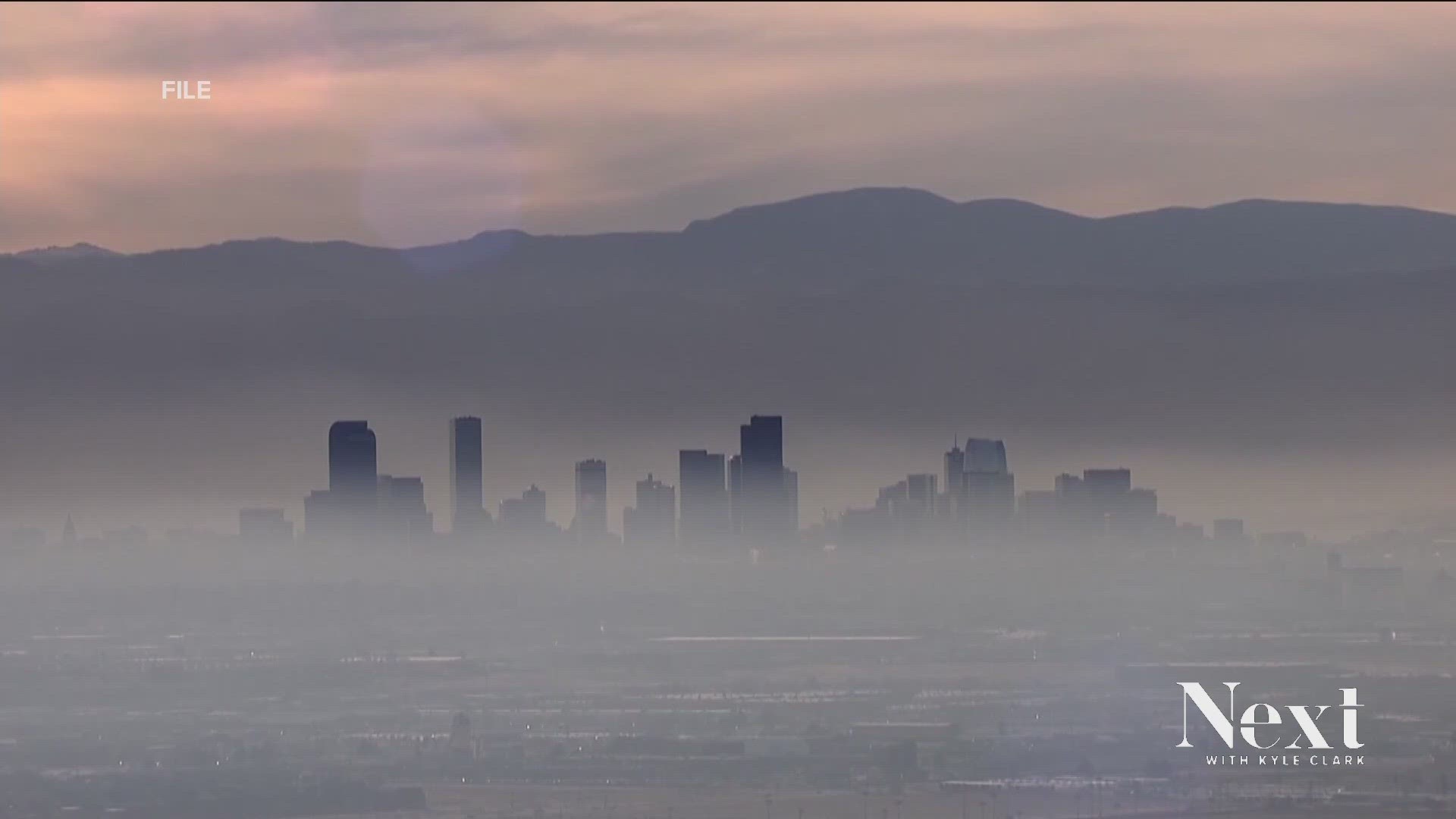DENVER — Gov. Jared Polis, D-Colorado, announced a plan Thursday for the oil-and-gas sector to cut nitrogen oxide (NOx) emissions, which are the main precursor for ozone pollution, over the next two years.
The plan would be the first comprehensive nitrogen oxide reduction program in the United States to reduce oil-and-gas emissions, the governor's office said.
Polis said he's directing the Colorado Oil and Gas Commission (COGCC) and the Colorado Department of Public Health and Environment (CDPHE) to come up with rules by the end of next year that would require upstream oil-and-gas operators to cut their NOx by at least 30% during the 2025 ozone season.
Oil-and-gas producers would have to cut NOx by at least 50% by 2030, the governor said.
Oil-and-gas production is projected to become the largest contributor of ozone precursor emissions on a ton per day basis, the governor said. Extraction activities are responsible for nearly half of the total ozone in the Denver metro area, according to the governor's office.
"These actions will significantly improve air quality and reduce levels of ozone pollution, with immediate cuts in ozone-causing chemicals in Colorado’s air in the next two years and the largest ongoing reduction in NOₓ from oil and gas in Colorado’s history," Polis said in a letter that was sent to the heads of the COGCC and CDPHE.
The Colorado Oil and Gas Association sent out this statement after the governor's announcement:
“Colorado’s oil and natural gas producers are committed to clean air and reducing our emissions, and we’re appreciative the governor has acknowledged that our industry leads the nation in clean operations. In fact, we’ve cut our emissions in half since 2013 with more reductions on the way as technology improves. However, the NOx targets as outlined by the governor are very ambitious and will be a challenge to achieve. This industry has proven time and again it is most successful when it leans into technology and innovation and engineers its way toward solutions. The governor’s letter raises questions for us, but we’re committed to being at the table for the rulemaking and finding commonsense ways to continue reducing our emissions along the Front Range.
Colorado’s rules governing oil and natural gas development in our state are already the most rigorous in the country, and we’re producing this resource cleaner and better than most anywhere on the planet. There are potentially eight more rulemakings to further strengthen those rules and reduce emissions on the books for 2023 alone. It’s time for the state, including the state legislature, to let the rules work and let our operators get to work producing the vital resources our country and the world need. Any legislation that aims to curb local production will only require our state to import more oil and gas from other states or countries and, as even the governor acknowledges, “delay progress toward cleaner air.”
COGA members have been working for years on voluntary measures to reduce emissions that cause ozone, including limiting truck traffic and certain technical procedures on high ozone alert days. We look forward to working with the state on ways we can engage more industries and more individual Coloradans in these important efforts and share our successes. While ozone precursor emissions from industry have gone down, which is great news, it will take an economy-wide effort to meet the federal government’s ever-tightening standards.
Finally, as we bring newer, more advanced developments online, we can more quickly decommission our older technologies. To do that, we need permits, which are essential to doing business in Colorado, and any changes to that process need to include a fair pathway to permits for all operators in Colorado – regardless of size of company or location – if they’re meeting the state’s already very high standards and expectations.”
The American Petroleum Institute's Midwest/Mountain West Director Lynn Granger added in part:
“The directives issued by Governor Polis today are aggressive and highly ambitious, and will necessitate an all-hands approach from regulators, industry and stakeholders. Ground-level ozone is a persistent issue along the Front Range, owing in large part to the unique topography of the region. In fact, nearly two-thirds of our daily ozone is attributable to naturally occurring ozone and out-of-state precursors. We believe the state’s efforts to combat this issue are genuine, but they must be economywide in scale to ultimately succeed. Nevertheless, our industry will continue to be part of the solution and rise to the challenge, as we always do, utilizing technology and innovation to help achieve these targets.
“We are, however, frustrated by the process in which these targets were set and the directives rolled out, as we already have a very robust rulemaking schedule in the coming year. These efforts should not distract from the real and enduring progress of Colorado’s natural gas and oil industry. Data collected over the past decade by third parties and state agencies demonstrate remarkable and continued greenhouse gas emissions reductions from the state’s oil and gas sector, and recently implemented regulations by the state’s Air Quality Control Commission and Colorado Oil and Gas Conservation Commission are certain to yield additional progress in the years ahead. Indeed, our industry is well on track to meet the 2025 emissions reduction goals as set forth in the governor’s GHG Pollution Reduction Roadmap, and we are confident that the outcomes of existing and future regulatory proceedings will result in our meeting the 2030 goals."
SUGGESTED VIDEOS: Colorado Climate
9NEWS+
9NEWS+ has multiple live daily shows including 9NEWS Mornings, Next with Kyle Clark and 9NEWS+ Daily, an original streaming program. 9NEWS+ is where you can watch live breaking news, weather updates, and press conferences. You can also replay recent newscasts and find videos on demand of our top stories, local politics, investigations and Colorado specific features.
To download 9NEWS+ on Roku search for KUSA.
To download 9NEWS+ on Fire TV search for 9NEWS.

